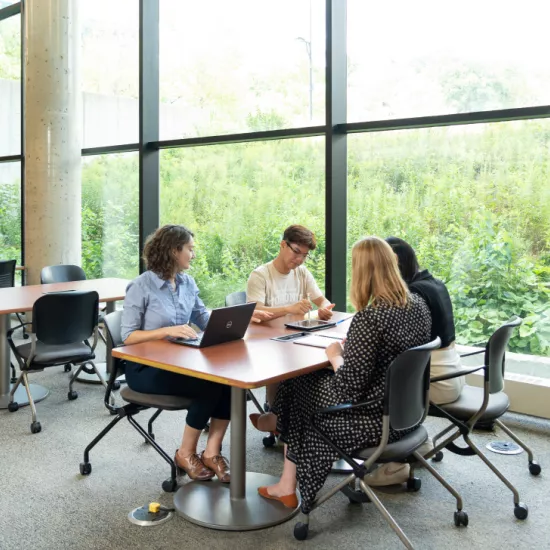Doing the Most with the Yeast: UTM PhD candidate wins Ontario division of Three-Minute Thesis competition

Don’t be intimidated about talking to Richard Kil if you have no understanding of synthetic biology; he can explain it to you in three minutes.
Kil, a U of T Mississauga PhD candidate in synthetic biology who works with Professor David McMillen, bested all comers in the recent province-wide Three-Minute Thesis competition, a contest that requires graduate students to explain their research to the layperson in three minutes flat.
“In three minutes, there’s really only time for a flashy headline and some basics,” Kil says. “In the 20 minutes allotted for a TED Talk, I could really explain what I do.”
Kil entered the thesis competition on a whim, he says, and ended up winning both the U of T competition and the Ontario final, held at the University of Waterloo in April. Come June, Kil has a chance to be named the national winner by a judging panel assembled by the sponsoring Canadian Association of Graduate Students, or the people’s choice winner. From May 12 to May 27, anyone can watch a video of Kil’s presentation and vote for him on the association’s website (www.cags.ca). Winners receive monetary prizes, as they have in each round.
Kil’s research idea is simple, but brilliant. In fact, it’s so clever that it was funded by a Grand Challenges of Canada research grant, federal grants awarded to ideas that could have a global health impact.
By genetically engineering yeast cells, Kil has created easy-to-use diagnostic tests for two tropical diseases: Chagas’ disease and Dengue fever. When these yeast cells are mixed with a patient’s blood and placed in a laboratory plate containing a well, or depression, they form a spot if the person is healthy. If the person is infected, the yeast cells spread out in a sheet. As a result, it’s possible to visually determine whether someone has been infected with one of the diseases.
Kil chose yeast as his medium because “it is regularly used in labs to test all kinds of proteins.” Yeast is also common to many households and industries, thanks to its use in baking and brewing, and it can be stored in dry form on shelves for a number of years.
“I always say, ‘What culture in the world hasn’t figured out bread, wine or beer?’” Kil says humorously. “It’s also familiar, so people don’t have to become comfortable with using new technology.”
Although his tests use proteins that respond to blood samples, Kil envisions the technology being extended to work with tests requiring saliva, urine or stool samples.
For underdeveloped regions where many medical tests are costly and hard to acquire, or where refrigeration may not be available, the tests are a practical, cheap solution. However, Kil acknowledges that there is still a long way to go before this can be brought to market.
“I hope we can get others working on this, too. The more funding we can secure and the more we get the word out, the more interest it will generate. What could be better than that?”



